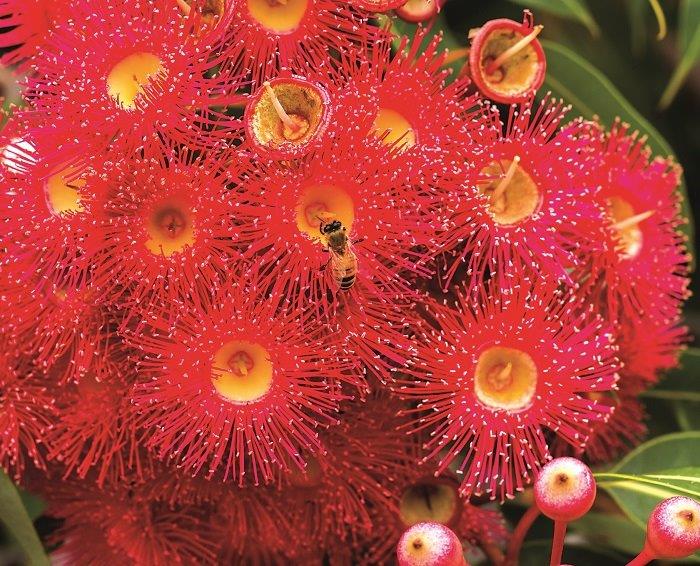In our feature article this edition, Revive explores the importance of bees in WA. Keeping with that theme, Heather Dowling shares some handy tips for keeping our bee friends happy and healthy in our home gardens.
Plant a native garden
Attract bees to your yard with a native garden that flowers all year round. Not only will your garden look amazing, it’ll save water too.
Many native plants will flower over a few different seasons, or even all year. Try Bottlebrush, flowering Gum Trees, Woolly Bush, Wattle, Hibiscus or Lilies. Make sure you prepare the soil to your plants’ needs by clearing weeds and, if possible, installing trickle irrigation, so you don’t over or under water.
If you’re close to Perth, visit Kings Park’s Backyard Botanical Garden. It’s full of native plants that are easy to grow at home. Kings Park also run monthly Dig it With Coffee workshops, where you can chat with a horticulturalist about your native garden. If Kings Park is too far for you to visit, check out the Friends of Kings Park website for a wealth of gardening information, including a great searchable native plant database in their Plant Sales section. Visit friendsofkingspark.com.au.
Build a bee hotel
Native bees love a good Bee Hotel! With native bushland being cleared more and more, our lodger bees may find it difficult to find places to nest.
Lodger bees love to nest in existing holes and there are lots of different species that you can help to find a home. For the curious minds, Bee Hotels are a great way to learn more about native bees and observe their behaviour – being careful to leave them to their own business.
Build a Bee Hotel by creating dry tunnels in wood or clay structures. This can be as simple as drilling some holes into a dry log, or as involved as building a fancy piece of art! Lengths of bamboo work well as tunnels, but avoid using chemically treated timber. Find out more about Bee Hotels and how to make one that will suit your garden at aussiebee.com.au/bee-hotel-aussie-bee-guide.html
Give them a drink
Like all of us, bees need water. Leave a few small bowls of water around the garden that bees can access throughout the day, and remember to check them every now and then to make sure they’re clean and that they haven’t evaporated or tipped over.
Avoid chemical pesticides
Chemical pesticide or insecticide not only kills bugs and insects you might want to keep off your plants, it’ll kill our lovable bee friends too! It’s also been linked to Colony Collapse Disorder, where worker bees are so stressed they will abandon a colony and leave their queen and her young behind. Colony Collapse Disorder is currently not affecting Australian bees, and nor would we want it to.
While bee-friendly pesticides are being developed, it’s best to steer clear from chemicals in the garden, especially around the home. If pesticides must be used, don’t spray near water supplies, or directly onto flowering plants. Also, spray late in the evening after bees have finished their work for the day. This will give the chemicals a bit of time to dry up before the bees come back in the morning.
